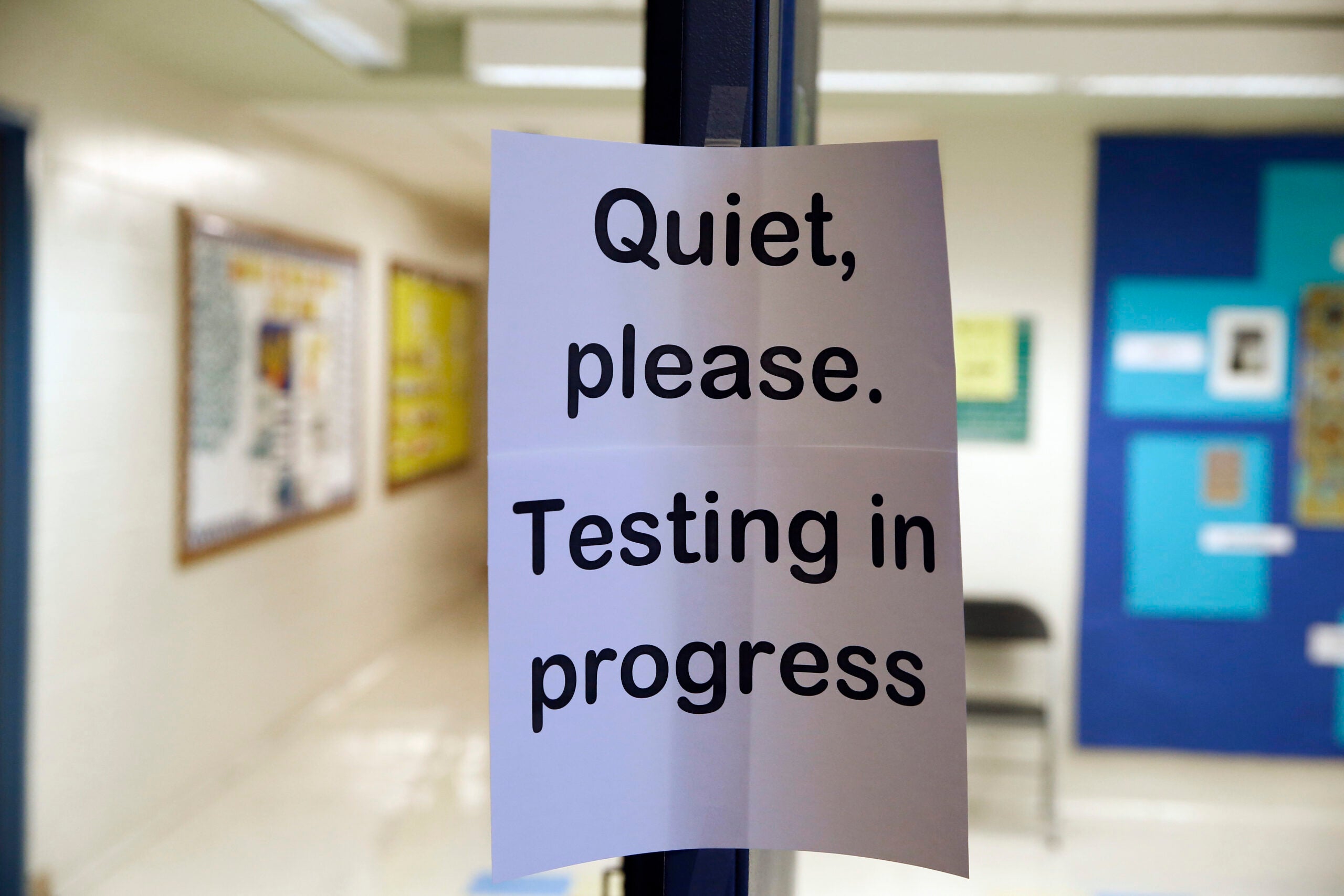Ninth graders at Madison East High School will no longer receive traditional letter grades in nine classes, including five required courses. The high school is one of many school districts across the state moving to standards-based grading.
Instead of receiving an A, a student is labeled “advanced” in a subject. D students are now labeled as “emerging.”
Supporters of standards-based grading say the shift isn’t that simple. Moving away from traditional grades gives students a chance to know what areas they need to focus on, said Patti Schaefer, director of STEM for the Madison Metropolitan School District.
Stay informed on the latest news
Sign up for WPR’s email newsletter.
The idea of standards-based grading is that the scale is an indicator of what a student knows and is able to do, rather than a process of accumulating points.
For example, getting a B is 80 to 90 points. But getting labeled “proficient” tells a student that they’re meeting learning targets but still have room to grow.
“That’s a better way for a student to know where they need to focus their attention for improving,” Schaefer said. “And teachers are able to have conversations with students that aren’t about how many more points (they) need to get a particular grade.”
Homework isn’t graded in the new system and attendance and behavior aren’t either. It’s only about what the student is learning, Schaefer said.
At the end of the semester, teachers do give students a traditional letter grade for their transcripts.
“I think most of us assume that colleges and universities won’t know how to understand this,” Schaefer said. “We want to make sure there is not a barrier. But we’ve also seen testimonials from universities locally as well as nationwide that this is absolutely not an issue.”
Madison schools already use this type of grading at its elementary and middle schools. The district decided to roll it out to first-year students at East High School because it paired with the standards-based learning already being taught, Schaefer said.
If successful, the model could be rolled out across the district to the other high schools, Schaefer said.
Standards-based grading is being used in Milwaukee Public Schools, the McFarland School District, the School District of Baraboo and, starting this year, Racine Unified School District.
Sara Shaw, a researcher with the Wisconsin Policy Forum who focuses on education, said ideally, standards-based grading puts a primary focus on learning by giving students multiple opportunities to demonstrate they have mastered a subject.
But implementation is key, Shaw said. Not focusing on homework grades, participation and behavior for incentives can sometimes be an issue for students.
“It can make for a rocky transition,” Shaw said. “And it requires teachers to know their content really well and to be able to identify how is a student doing relative to these standards. It requires a lot of upfront investment both on the school front and the family end.”
Despite the A-F grading system still being the most used across the country, only 1 in 6 educators surveyed by the EdWeek Research Center said it’s effective.
The survey of 863 teachers released in November, found more than three-quarters of school districts were using the traditional grading system. Just 11 percent of teachers reported using a different type of grading, such as standards-based.
Back in Madison, Schaefer said she has heard mixed reviews from parents and the district has already made some changes. For example, the explanations for the different standards were too long, according to parents, so they are being shortened.
Schaefer said the world is changing and students and teachers expect education leaders to figure out the best ways to support them.
“We want to make sure they are supported, and we have designed this system with them in mind,” she said.
Editor’s Note: This story has been updated to clarify the scope of the grading pilot.
Wisconsin Public Radio, © Copyright 2025, Board of Regents of the University of Wisconsin System and Wisconsin Educational Communications Board.





